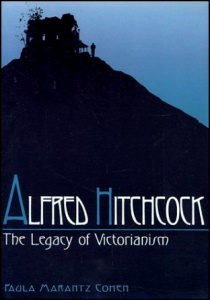Alfred Hitchcock: The Legacy of Victorianism (2006) by Paula Marantz Cohen
 | |
| Paula Marantz Cohen | |
| University Press of Kentucky (2006) | |
| ISBN 0813108500 | |
| LibraryThing | |
Product Links
Synopsis
This provocative study traces Alfred Hitchcock's long directorial career from Victorianism to postmodernism. Paula Cohen considers a number of Hitchcock's most acclaimed films -- Shadow of a Doubt, Rear Window, Vertigo, Psycho -- as well as some of his less well-known ones -- Rope, The Wrong Man, Topaz -- and makes connections between his evolution as a filmmaker and trends in the larger society. Drawing on a number of methodologies including feminism, psychoanalysis, and family systems, the author provides an insightful look at the paradox of a Victorian era. His career, she argues, can be seen as an attempt to balance "the two faces of Victorianism": a masculine legacy of law and hierarchy and a feminine legacy of feeling and imagination. Also central is the Victorian model of the nuclear family and its permutations, especially the father-daughter dyad. Cohen postulates a fundamental dynamic in Hitchcock's films, what she call a "daughter's effect," and relates it to the social role of the family as an institution and to Hitchcock's own relationship with his daughter, Patricia, who appeared in three of his films. Cohen argues that Hitchcock's films reflect his Victorian legacy and serve as a map for ideological trends. She charts his development from his British period through his classic Hollywood years into his later phase, tracing a conceptual evolution that corresponds to an evolution in cultural identity -- one that builds on a Victorian inheritance and ultimately discards it.
Reviews
- American Cinematographer (1995) - Alfred Hitchcock: The Legacy of Victorianism
- Film & History (1995) - Book Review: Alfred Hitchcock - The Legacy of Victorianism
